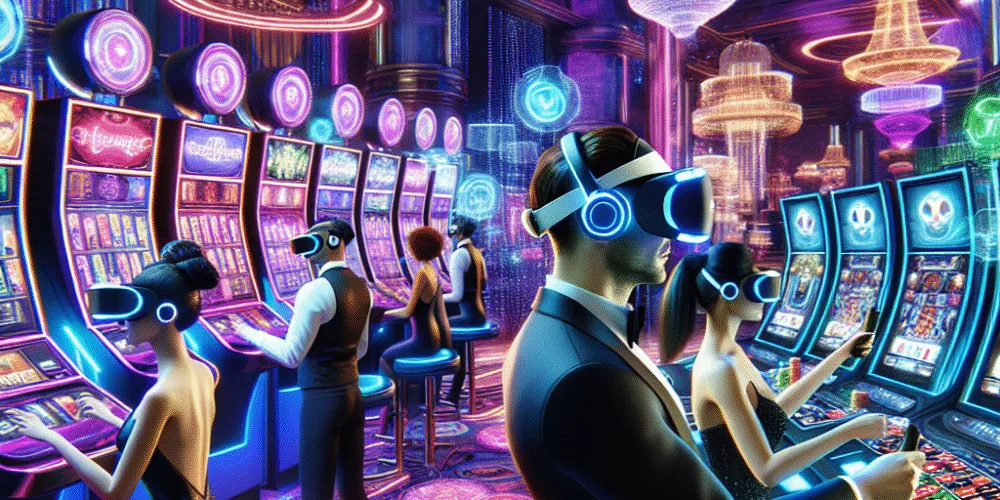In recent years, the lines between virtual gaming and casino entertainment have blurred, giving rise to an exhilarating development in the world of gambling: Virtual Reality (VR) casinos. This innovative technology is transforming traditional gambling, offering players an immersive experience that rivals even the most luxurious Las Vegas establishments, all from the comfort of their own homes.
Virtual Reality technology in gaming isn’t new, but its application in the casino industry is a burgeoning trend that promises to offer gamblers a whole new level of engagement. VR casinos incorporate detailed, three-dimensional environments that visually and auditorily simulate the experience of being in a real casino. Players can roam around interactive casino floors, choose from a variety of slot machines and table games, and interact with other players and dealers in real-time.
The appeal of VR casinos is manifold. For starters, they are accessible. Users only need a VR headset and a compatible gaming platform to dive into the action. This accessibility opens up the luxe casino experience to a broader audience, including those who may not be able to travel to traditional casino destinations due to financial, health, or geographic reasons.
Secondly, VR casinos offer an unparalleled level of immersion that goes beyond what traditional online casinos can provide. In a VR casino, players aren’t just clicking a mouse or watching a video stream; they’re stepping into a vividly recreated world. When you sit at a VR poker table, you can gaze around at your opponents, pick up chips, feel the texture of the cards, and even engage in side conversations, just like in a real casino.
Economic aspects also play a significant role in the rise of VR casinos. With the global VR market estimated to grow significantly in the next few years, numerous casino operators and software developers are jumping on the bandwagon, eager to tap into this lucrative market. Games are becoming more sophisticated, with companies investing heavily in creating realistic, engaging content that can draw players back repeatedly.
However, the shift towards virtual spaces isn’t without challenges. Regulatory issues are a significant hurdle. Gambling laws vary widely from one jurisdiction to another, and applying these laws to a global, digital medium presents complex legal challenges. There’s also the issue of ensuring that the games are fair and that the technology can prevent cheating, which is paramount to maintaining the integrity of the games.
Privacy and security are other concerns. Players must provide personal and payment information when registering at VR casinos, just like at traditional online casinos. Ensuring the security of this data is crucial, as breaches could not only lead to financial loss but also damage a casino’s reputation irreparably.
Despite these challenges, the potential of VR casinos is immense. Some of the world’s leading casino cities, like Las Vegas and Macau, are already exploring ways to integrate VR technology to enhance the tourist experience. Imagine walking through a virtual replica of the Strip or visiting a digital version of a mega-casino, complete with the thrill of high stakes games and no risk of losing actual money.
In conclusion, as VR technology continues to evolve and become more mainstream, the casino industry is poised at the cusp of a revolution. The immersive, engaging experience of VR casinos is likely to attract a new generation of gamblers, redefining what it means to “hit the casino” in the digital age. For both consumers and operators, VR casinos offer exciting opportunities, promising to reshape gambling’s future into an experience beyond mere chance and luck, into one deeply enveloped in a digital spectacle.

Karine Gomez is an enthusiastic writer and avid gamer with a particular love for PlayStation and casino gaming. Her deep knowledge of gaming trends and casino dynamics makes her articles both informative and engaging. Karine’s passion for PlayStation games and her firsthand experience with casino play shine through in her writing, offering readers authentic insights and valuable tips.

